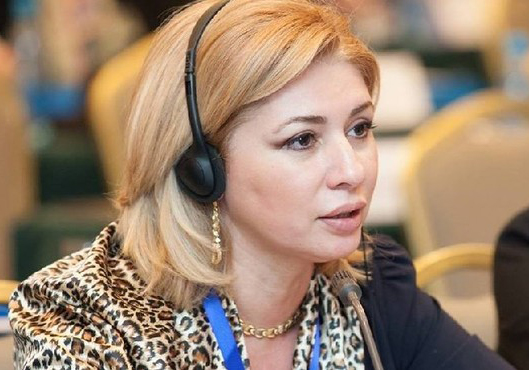
Jun 18, 2018
Today, the ICJ expressed concern at the recent disbarment of Irada Javadova, a high-profile lawyer in Azerbaijan and a former member of the Board of the Azerbaijan Bar Association.
The ICJ called on the Bar Association to reopen the disciplinary proceedings to afford Irada Javadova a chance to fully present her case in fair proceedings.
The ICJ also called on the Bar Association to reform their disciplinary procedures and practice with a view to ensuring fairness.
Disciplinary proceedings should not be used as a means of harassment of lawyers or as reprisals for lawyers’ defence of the human rights of their clients.
On June 11 2018, the Presidium of the Bar Association decided to disbar Irada Javadova, based on the information provided by a person who sought her legal assistance (K.M.). According to K.M.’s submission, Javadova made statements in the media concerning K.M.’s case, without her consent and without having a notarized power of attorney.
After receiving a request from K.M’s mother to inquire about the whereabouts of her daughter, in an open letter, Javadova had raised concerns at the possible arbitrary detention of K.M. This triggered disciplinary action against the lawyer.
The ICJ notes that contrary to the procedure established by the Law on Lawyers and Advocates Activities, Irada Javadova had no opportunity to present her case at the summary disciplinary hearing before the Presidium.
She did not receive a copy of the opinion of the Disciplinary Commission submitted to the Presidium, and evidence that she provided to it not considered or evaluated.
Irada Javadova is the latest of several Azerbaijan lawyers to be disbarred after publically raising concerns about possible human rights violations of their clients. Such disbarments represent an alarming trend and have a chilling effect on lawyers’ work to defend human rights, including by attempting to assist relatives of missing persons.
In its report on the independence of lawyers in Azerbaijan, the ICJ concluded that disciplinary procedures for lawyers “suffer from a lack of objective criteria, predictability and transparency. There are also concerns regarding the lack of clear criteria in law, practice or guidance, for the imposition of the most severe disciplinary penalty, disbarment. These gaps in standards lead to problems in practice, opening the way for … arbitrary victimization of lawyers through disciplinary proceedings.”
The ICJ stresses that, in accordance with the right to a fair hearing and with international standards on the role of lawyers, disciplinary proceedings against lawyers must be fair, must protect against arbitrariness, and must provide guarantees for the independence of lawyers.
Lawyers should be able to present their case and should be able to introduce evidence to be considered and evaluated in good faith.
In accordance with these principles, the ICJ calls on the Azerbaijan Bar Association to ensure that lawyers subject to disciplinary proceedings obtain copies of all relevant documents in the proceedings, in order to be able to prepare their arguments prior to the hearing in the Presidium.
Background information
Irada Javadova is a lawyer based in Baku. She has been a member of the Azerbaijan Bar Association for 13 years. From 2012-2017 she was a member of the Presidium of the Bar Association and is known for her work as a human rights lawyer.
Irada Javadova represented K.M. who was a suspect in a fraud-related case. K.M. concluded a contract with Javadova and was on her way to notarize it. After K.M. had left the lawyer’s office she was apprehended by people in plain clothes and was brought to the Main Organized Crime Department of the Ministry of Interior.
Subsequently, K.M.’s mother contacted Javadova asking her to take up the case and find out about the whereabouts of her daughter.
Acting upon the request of K.M.’s mother, Irada Javadova applied to the responsible State authorities urging them to provide information about her client. Having obtained no response, Javadova published an open letter addressed to the Minister of Internal Affairs. After the open letter had been published, K.M. was released.
However, later K.M. complained about the actions of her lawyer, stating that she did not have a power of attorney to represent her and that the statement made by Irada Javadova in the media was false and slanderous.
Irada Javadova, in turn, denies the allegations and states that she has all the evidence to prove that she acted based on a contract signed with K.M. and in the best interest of her client. On 12 June, Javadova met with representatives of the Presidium of the Bar Association to submit her evidence.
She was informed that there would be an appeal to Baku Administrative Economic Court No. 1 and that she could defend her claims in court.
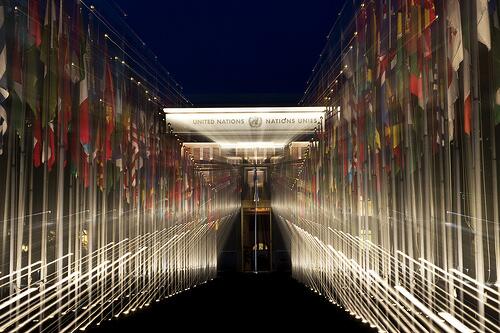
May 31, 2018
The ICJ together with ECRE, the AIRE Center and the Dutch Council for Refugees submitted a third party intervention to the UN Committee on the Rights of the Child in case D.D. v Spain 4/2016 pending in front of the Committee.
The case concerns a collective expulsion of a child from a Spanish enclave of Melilla to Morocco. The case has been declared admissible by the Committee in June 2017.
The UN CRC allows for individual complaints since April 2014 for children against countries that ratified its Third Optional Protocol on a Communications Procedure.
The current submission of the ICJ and partner organisations is focusing in particular on State’s jurisdiction (CRC article 2.1), access to the territory and non-refoulement (CRC articles 3.1, 6, 20, 37), specific safeguards for children (CRC articles 3.1, 12 and 22) and collective expulsions (CRC articles 3.1, 20 and 22).
The intervention analyses the legal principles and jurisprudence related to scope and content of States Parties’ obligations, without reference to the particular facts of the case before the Committee.
The submission will also be considered by the Committee when examining the case. It is also now being transmitted to both parties for comments, in accordance with Rule 23.2 of the Committee’s Rules of procedure on the OPIC.
The intervening organisations argue that:
- A State has jurisdiction over children who are subject to its authority or effective control on or at its land border, whether within or outside its territory. When a State Party exercises its jurisdiction over a child, its responsibility is engaged and it is required to comply with its international obligations of human rights protection, including under the Convention on the Rights of the Child (CRC), particularly as regards the assessment of the best interests of the child and the child’s right to be heard. Where a State Party is an EU Member State, it is additionally obliged to ensure the respect of the child’s best interests, protection and care necessary for the child’s well-being as well as the other child-specific guarantees under EU law.
- Children who are subject to the authority or effective control of a State on or at its land border must be granted access to the territory as a prerequisite to the initial assessment process and further afforded the opportunity to meaningfully raise objections to their transfer, as the principle of non-refoulementand the prohibition on collective expulsions require. The prohibition of refoulement on certain grounds is of an absolute nature in international human rights law and entails positive duties on the part of States, including to grant children the possibility to present the reasons against their return, to ensure their access to legal assistance and to a guardian, and to perform an individualized assessment to verify and evaluate the risk of refoulement.
- The prohibition of collective expulsion requires a thorough and rigorous assessment, including the examination of the particular circumstances of those forming part of the group of non-nationals concerned by the measure. This obligation also entails their effective identification and registration as well as information about, and access to applicable protection procedures and remedies where relevant. These safeguards apply whenever the individuals concerned fall within State Parties’ jurisdiction, including in circumstances when jurisdiction is exercised extraterritorially and irrespective of their migration status.
- When children are involved, the prohibition of collective expulsion additionally requires compliance with child-specific rights and corresponding tailored procedural safeguards. Collective expulsion entails a violation of the primary obligation to assess the best interest of the child in each individual case, which must be carried out prior to any decision to return or refuse entry or any other decision affecting children and must be adequately reflected in this decision.
UN-Third-party-intervention-DD-v-Spain-Rights-of-the-Child-May-2018-ENG(full PDF in Eng)
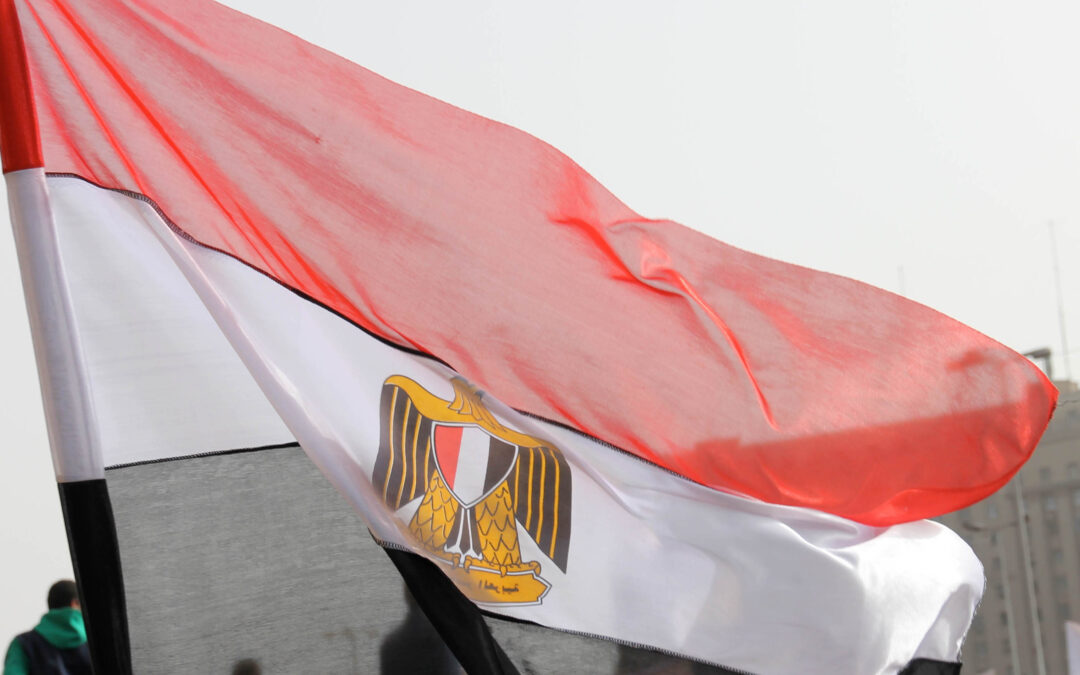
Jun 23, 2016
The ICJ has joined other international NGOs in a joint statement of concern about the severe and worsening repression of civil society in Egypt.
Together with, Amnesty International, CIVICUS, EuroMed Rights, FIDH, Front Line Defenders, Human Rights Watch, IFEX, the International Service for Human Rights, People in Need and the World Organisation Against Torture (OMCT), the ICJ highlights a number of anti-civil society measures and cases in Egypt, ultimately calling on Egyptian authorities to immediately take the following steps to address the severe violations against human rights defenders:
- Abide by their own pledges made in March 2015 at the conclusion of Egypt’s Universal Periodic Review before the United Nations Human Rights Council to “respect the free exercise of the associations defending human rights,” and comply with their obligations under Article 75 of the 2014 Constitution, which protects civil society organizations from interference by the government.
- Close the politically-motivated Case 173 of 2011, known as the “foreign funding case,” and withdraw all measures of harassment and intimidation of human rights defenders taken with reference to that case, including travel bans, the asset freeze order and trumped-up tax investigations.
- Amend penal code Article 78, which in very broad terms penalises the receipt of foreign funding without government approval and imposes a penalty of up to life imprisonment, which in practice in Egypt is 25 years, in addition to a 500,000 Egyptian pound fine (US$56,300).
- Cease all additional forms of legal and other harassment of human rights defenders.
- Repeal the Protest Law (Law 107 of 2013), which severely restricts the right to peaceful assembly, or amend it in order to bring it in line with international human rights law and the Egyptian constitution.
- Repeal the Counter-Terrorism Law (Law 94 of 2015), which effectively criminalizes freedom of expression, association and assembly, or amend it substantially to bring it in line with international human rights law and standards.
- Immediately release all individuals imprisoned solely for the peaceful exercise of their rights to freedom of expression, association and assembly; drop the charges against them and ensure that any who have been convicted have their convictions quashed.
The full statement may be downloaded in PDF format here: Egypt-Advocacy-JointNGOStatement-2016
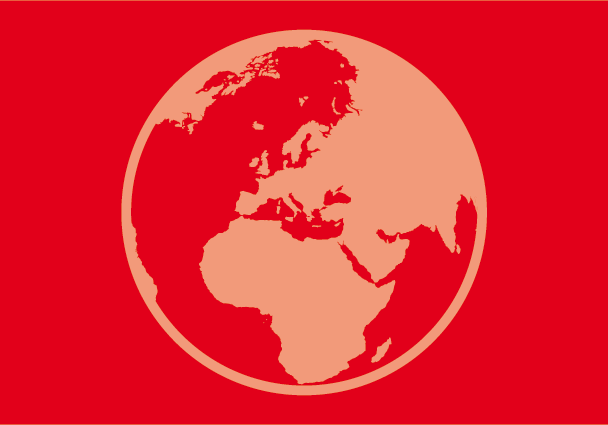
Dec 14, 2015
The Australian Section of the ICJ, in Victoria, has called for a human rights based approach to countering the threat of violent extremism within the counter-terrorism strategy of the Australian Government.
ICJ Victoria’s Position Paper addresses the current approach of the Australian Government, proposing that this risks aggravating, rather than mitigating, the social causes of violent extremism; and that an effective counter-terrorism strategy must include prevention, deradicalisation and rehabilitation programmes in order to be effective and just. It concludes with recommendations to those ends.
Australia-DeradicalisationRehabilitationPrevention-ICJVictoria-2015-EN (download Position Paper in PDF)
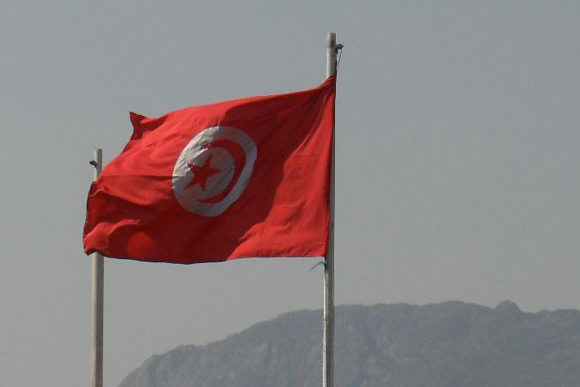
Sep 14, 2015
The ICJ today called on the members of the Tunisian parliament to amend the draft law on the High Judicial Council (HJC), with a view to ensuring its full compliance with international standards on judicial independence.
In a new position paper, the Geneva-based organization acknowledges that the draft law provides enhanced guarantees for judicial independence, in particular by ending executive control over the HJC, by providing for a majority of the HJC’s members to be judges elected by their peers, and by ensuring that the HJC is the only body competent to manage the career of judges.
But the ICJ remains concerned that in certain key respects, the draft law falls short of international standards.
In particular, it does not provide for specific, concrete measures to ensure women’s full and equal participation and representation in the HJC and the judiciary as a whole, for the HJC to be consulted on, and involved in, the preparation and implementation of the judiciary’s budget, and for adequate financial resources to be available for both the HJC and the judiciary in general.
“The Tunisian Assembly should ensure that the draft law is amended so that the HJC is truly independent, pluralistic and gender-representative and its competencies are expanded to include its involvement in the preparation and implementation of the budget for the entire judiciary, not only that of the HJC,” said Said Benarbia, Director of the ICJ MENA Programme.
The ICJ is also concerned that, while the draft law provides enhanced guarantees for the management of the career of judges by the HJC, the provisions relating to the security of tenure of judges and the transfer of judges, as well as certain aspects of the disciplinary system, are not fully in line with international standards.
“The draft law should be amended to ensure that judges may only be removed for reasons of incapacity or behaviour that renders them unfit to discharge their duties, that in all circumstances their consent is sought for any transfer to another jurisdiction, and that all disciplinary proceedings against them are fair and determined in accordance with established standards of judicial conduct,” Benarbia added.
Contact:
Theo Boutruche, Legal Adviser of the ICJ Middle East and North Africa Programme, t: +96 170 888 961, e: theo.boutruche(a)icj.org
Tunisia-Final HJC Draft Law-Advocacy-Position Paper-2015-ENG (full text of position paper in PDF, English)
Tunisia-HJC law-News-2015-ARA (full news text in PDF, Arabic)
Tunisia-Final HJC Draft Law-Advocacy-Position Paper-2015-ARA (full text of position paper in PDF, Arabic)









